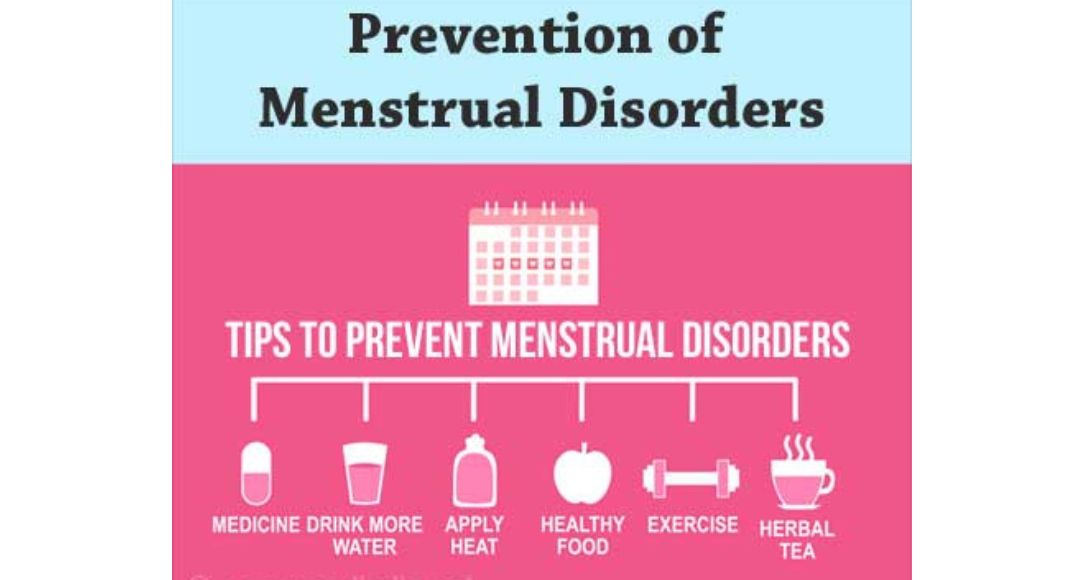Are you concerned about your daughter’s menstrual health? As parents, we all want our adolescent girls to blossom confidently into young women, unfettered by hormonal imbalances or distressing symptoms.
Menstrual disorders can be a major hurdle in the lives of adolescent girls, affecting not only their physical health but also their emotional well-being. Don’t let menstrual disorders hinder your daughter’s happiness and potential. Let’s empower her to take control of her health together. That’s where our signora clinic comes in.
We aim to provide valuable insights into the world of menstrual disorders in adolescent girls and discuss the available treatment options at signora clinic in Bangalore. We understand the frustration, confusion, and pain that these young girls experience, and we want to offer them the guidance and support they need. From understanding the causes and symptoms of various menstrual disorders to exploring the potential treatments and lifestyle adjustments.
Compassionate Care for Menstrual Disorders in Adolescent Girls – Trust Signora Maternity for Expert Treatment and Support in Bangalore!
Menstrual disorders are a common concern among adolescent girls, affecting their physical and emotional well-being. It’s crucial to have a comprehensive understanding of these disorders and the available treatment options. Lets explore the various types of menstrual disorders that can occur in adolescent girls and discuss their impact on daily life.
Dysmenorrhea refers to painful menstrual cramps that occur just before or during the menstrual period. Symptoms may include lower abdominal pain, backache, headache, and nausea. It can significantly impact a girl’s daily activities and quality of life.
Amenorrhea is the absence of menstrual periods in adolescent girls who have reached the age of 15 or have not started menstruating within 3 years of breast development. It can be categorized as primary (never had a period) or secondary (periods cease after starting). Primary amenorrhea can result from various factors such as genetic disorders, hormonal imbalances, or anatomical abnormalities. Secondary amenorrhea may be due to stress, excessive exercise, weight loss, or certain medical conditions.
Menorrhagia refers to abnormally heavy or prolonged menstrual bleeding. Adolescent girls experiencing menorrhagia may need to change sanitary pads frequently, have blood clots, and experience fatigue or anemia due to excessive blood loss.
a) Hormonal Imbalances: Hormonal imbalances, such as an excessive level of estrogen or progesterone, can disrupt the normal menstrual cycle and lead to various menstrual disorders.
b) Stress and Emotional Factors: High levels of stress, anxiety, or emotional turmoil can affect hormone production and contribute to menstrual irregularities.
c) Nutritional Deficiencies: Poor diet and inadequate nutrition can affect hormone production and overall reproductive health, increasing the risk of menstrual disorders.
1.Irregular Menstrual Cycles: Menstrual cycles that are consistently longer than 35 days or shorter than 21 days may signify a hormonal imbalance or other underlying issues. Frequent skipping of menstrual periods or unpredictable bleeding patterns should be closely monitored.
2.Excessive Menstrual Bleeding: Heavy menstrual bleeding, also known as menorrhagia, goes beyond the normal range and can result in soaking through pads or tampons in a short amount of time. Passing blood clots during menstruation can also be a sign of abnormal bleeding.
3.Severe Menstrual Pain: Menstrual cramps are common, but severe pain that hinders daily activities and requires strong painkillers may be a cause for concern. Endometriosis, a condition where the uterine lining grows outside the uterus, can cause excruciating pain during menstruation
4.Hormonal Imbalances: Hormonal fluctuations can lead to symptoms like mood swings, irritability, and depression. Acne breakouts and changes in weight or appetite may also indicate hormonal imbalances.
5.Premenstrual Syndrome (PMS): Many adolescent girls experience physical and emotional symptoms in the days leading up to their period. Common signs of PMS include bloating, breast tenderness, fatigue, mood changes, and food cravings.
6.Absence of Menstruation: Primary amenorrhea refers to the absence of menstruation by the age of 15, while secondary amenorrhea is when a girl previously had regular periods but suddenly stops menstruating. Absence of menstruation can be a sign of hormonal issues, malnutrition, excessive exercise, or polycystic ovary syndrome (PCOS).
It is important to remember that every adolescent girl’s experience with menstruation can vary, but persistent or severe symptoms should not be dismissed. If you notice any of these signs, it is recommended to consult an expert gynecologist for a proper evaluation and guidance.
Diagnosing and evaluating menstrual disorders in adolescent girls requires a comprehensive approach that includes gathering a detailed medical history, conducting a physical examination, performing laboratory tests, and utilizing imaging studies when necessary. Additionally, encouraging the use of a menstrual diary can provide valuable information for accurate evaluation.
When it comes to treating menstrual disorders in adolescent girls, there are various approaches available at signora clinic in Bangalore that can help alleviate symptoms and improve overall well-being.
Oral contraceptives containing hormones like estrogen and progestin may help regulate menstrual cycles and reduce symptoms such as heavy bleeding and pain.
A hormone medication that can help regulate periods and manage excessive bleeding.
This small device is placed inside the uterus and releases hormones to regulate menstrual cycles and reduce pain.
Common NSAIDs like ibuprofen and naproxen can be effective in relieving pain associated with menstrual disorders. They work by reducing inflammation and discomfort.
Engaging in physical activity can help balance hormones, reduce stress, and regulate menstrual cycles.
Encouraging a well-balanced diet, rich in fruits, vegetables, whole grains, and lean proteins, can support overall hormonal balance and reduce symptoms.
Teaching stress-reduction techniques such as deep breathing exercises, mindfulness, and relaxation techniques can help manage symptoms of menstrual disorders.
In severe cases where other treatments have failed or if there is an underlying structural issue causing the menstrual disorder, surgical interventions may be necessary. These procedures could include dilation and curettage (D&C), endometrial ablation, or even hysterectomy in rare cases.
1.What are the symptoms and treatment options for Dysmenorrhea (painful periods)?
Dysmenorrhea causes cramps, lower back pain, and nausea. Treatment includes pain relievers, heat therapy, and hormonal treatments.
2. What are the symptoms and treatment options for Menorrhagia (heavy bleeding)?
Menorrhagia involves excessive bleeding lasting more than 7 days. Treatments include hormonal therapy, medications, or surgery, depending on the cause.
3. What are the symptoms and treatment options for Polymenorrhea (frequent periods)?
Polymenorrhea refers to cycles shorter than 21 days. Treatments may include hormonal therapy to regulate periods.
4. What are the symptoms and treatment options for Oligomenorrhea (infrequent periods)?
Oligomenorrhea occurs when periods are irregular or absent for over 35 days. Treatment may involve lifestyle changes or hormonal therapies.
5. What are the symptoms and treatment options for Amenorrhea (absent periods)?
Amenorrhea is the absence of periods. Primary amenorrhea requires evaluating hormonal or genetic causes, while secondary amenorrhea may be due to stress, weight loss, or PCOS.
6. How is primary dysmenorrhea diagnosed and managed?
Primary dysmenorrhea is diagnosed based on symptoms. Management includes pain relief and, in severe cases, hormonal treatments.
7. What are the causes and treatment options for secondary dysmenorrhea?
Secondary dysmenorrhea is caused by conditions like endometriosis or fibroids. Treatment involves addressing the underlying cause.
Facing specific menstrual disorders? Signora Maternity Clinic offers personalized treatment and support for adolescent girls. Contact us today to schedule your appointment and take the first step towards better health!
1.How do hormonal changes affect menstrual cycles?
Hormonal fluctuations during adolescence can cause irregular periods, acne, and mood swings. Most issues resolve over time.
2. What role do thyroid disorders play in menstrual irregularities?
Thyroid imbalances can lead to heavy, irregular, or absent periods. Proper diagnosis and treatment can restore normal cycles.
3. Can polycystic ovary syndrome (PCOS) affect menstrual cycles?
PCOS can cause irregular periods, excess hair growth, and weight gain. Hormonal treatments and lifestyle changes can help.
4. How do eating disorders impact menstrual health?
Eating disorders can disrupt hormonal balance, leading to irregular or absent periods. Proper nutrition and treatment are essential.
Struggling with hormonal and reproductive issues? Signora Maternity Clinic provides expert care tailored for adolescent girls. Reach out today to book your appointment and ensure your menstrual health is prioritized!
1.What are non-pharmacological treatments for menstrual disorders?
Non-pharmacological treatments include lifestyle changes, yoga, acupuncture, and diet adjustments to manage symptoms naturally.
2. What medications are commonly prescribed for menstrual disorders?
Common medications include pain relievers, hormonal contraceptives, and iron supplements to address various menstrual issues.
3. How effective are hormonal contraceptives in regulating menstrual cycles?
Hormonal contraceptives effectively regulate irregular periods and reduce symptoms like pain and heavy bleeding.
4. What alternative therapies (e.g., acupuncture, herbal remedies) are available?
Alternative therapies like acupuncture, herbal remedies, and yoga can provide relief from menstrual pain and discomfort.
Need effective treatment for menstrual disorders? Signora Maternity Clinic specializes in managing and treating adolescent girls' issues. Contact us now to schedule an appointment and regain control of your menstrual health!
1. How do menstrual disorders affect mental health?
Menstrual disorders can contribute to anxiety, depression, and mood swings. Managing these issues early is crucial.
2. What is the impact of menstrual disorders on self-esteem and body image?
Menstrual disorders can affect self-esteem due to symptoms like bloating, acne, and mood swings. Open communication and care are essential.
3. How can adolescents cope with menstrual-related anxiety and depression?
Coping strategies include stress management, counseling, and proper medical care for managing anxiety and depression linked to periods.
Struggling with the emotional impact of menstrual disorders? Signora Maternity Clinic offers compassionate support for adolescent girls. Schedule your consultation today to discuss your mental health and find effective coping strategies!
1. Menstrual management for adolescents with disabilities?
Personalized menstrual care plans can help adolescents with disabilities manage their cycles effectively.
2. Menstrual health in adolescents with chronic medical conditions?
Chronic conditions can impact menstrual health, requiring tailored treatment plans for symptom relief.
3. Nutrition and menstrual health?
Balanced nutrition supports healthy menstrual cycles. Iron-rich foods and adequate hydration are essential for managing symptoms like fatigue.
Facing unique challenges with menstrual disorders? Signora Maternity Clinic provides specialized care for adolescent girls with special considerations. Contact us today to schedule your appointment and receive tailored support!
Adolescent girls are going through a lot of changes, both physically and mentally. This can lead to a number of menstrual disorders, including those that are not usually seen in adults. At our signora clinic in Bangalore, we offer a variety of treatments for menstrual disorders in adolescent girls. We use the latest technologies and treatments to help our patients get better as quickly as possible. We understand the importance of taking care of your health, and we are committed to providing the best possible care for our patients. Contact us to know more!
Discover comprehensive women's healthcare services at Signora Maternity, our premier fertility hospital in Bangalore. From Pap smear and dilation and curettage treatments to high-risk pregnancy care and postnatal support, Signora Maternity offers a range of specialized services. Our expert team provides personalized care for menstrual disorders, fertility issues, repeated abortions, antenatal care and post-menopause concerns. Additionally, we offer HPV vaccination, Mirena intrauterine IUD insertion, and menstrual cup consultations. Trust Signora Maternity for top-notch preconception counseling and female infertility treatments. Experience excellence in maternity care at Signora Maternity, known as the best maternity hospital in Bangalore. Visit us for UTI and PCOD treatments tailored to your needs. Your health and well-being are our priority. Schedule an appointment today.
Visit Our Maternity clinic Today
Name: Signora Maternity and Gynecology Clinic
Address: 396, 1st floor , 8th main, 7th Cross Rd, BTM 2nd Stage, Bengaluru, Karnataka 560079
Contact number: 6362141790
My daughter struggled with severe menstrual issues for months, and I’m so grateful we found Signora Maternity. The doctors were compassionate, and they guided us through every step of her treatment. Her condition has improved significantly, and she feels so much better now
Signora Maternity was a lifesaver for my teenage daughter who had been dealing with painful and irregular periods. The doctors are extremely knowledgeable and patient, and they made sure to address all our concerns.
I’m really happy with the care my daughter received at Signora Maternity. The team understood her concerns and provided a treatment plan that was both effective and gentle.


